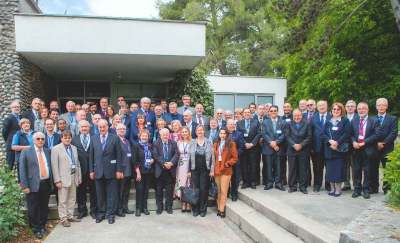


On 19-20 May, some 50 scientists, social scientists, ambassadors, economists and other distinguished experts convened in Podgorica, Montenegro, at the invitation of the Montenegrin Academy of Sciences and Arts (MASA).
The participants, including representatives from more than 20 academies, were attending a forward-looking conference on ‘Technology + Society ->? Future’.
In his opening remarks, Momir Djurovic, president of MASA, contrasted biological evolution, whereby organisms adapt in an undirected way to changing conditions, to the evolution of technology, which is driven by human ingenuity and design.
“But is it going the way we want?” he asked. He added that previous major cultural changes had happened over many years, such as the shift from the Stone Age to the Bronze Age, or from agriculture-based societies to the Industrial Revolution, whereas the technological revolution is happening within a generation.
As well as investigating the scientific possibilities and the potential social impacts of advances in such areas as the internet of things, synthetic biology and nanotechnology, much discussion focused on the Sustainable Development Goals and how to lift more people out of poverty while respecting their right to work, earn a decent living and live with dignity.
As one participant noted, “We have multidimensional problems, but we try to solve them all in one dimension – money! Money has become the measure of everything.”
Indeed, it was pointed out that the world’s 63 richest people own the same amount of wealth as 50% of the rest of the population, or 3.5 billion people.
“Today’s market economy is based on competition,” concluded Djurovic, “but in future we must develop ways to collaborate instead of competing.”
Additional information
IAP Coordinator, Peter McGrath, attended the meeting. As well as giving an opening address, he presented a paper on ‘Synthetic Biology: Opportunities and governance’.